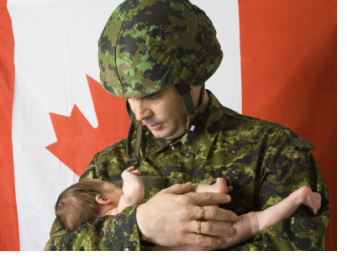OTTAWA (CUP) — To combat the sprawling nature of Canada and repair the historical fracture between the East and West, a second national capital should be established in a western city like Calgary, says a longtime political strategist in his recently released book.
Ray Argyle, a British Columbia native who now lives in Toronto, examines the history of federal elections and referendums dating back to Confederation in his book Turning Points. He concludes that Ottawa has a history of being out of touch with people living west of the Manitoba-Ontario border. The solution, he says, is to make Calgary a second capital. “It is not a particularly radical concept when you think about it,” said Argyle in a phone interview. “People want to be close to their government.”
Argyle, who has a background in communications and spent 10 years researching his book, suggests the Senate and House of Commons sit for part of the year in a western capital. He also recommends some federal departments with national responsibilities relocate to the West. The idea would build on existing policy and “move it forward in a dramatic way,” Argyle said, pointing to current examples of federal decentralization, like basing the National Energy Board in Calgary instead of Ottawa. In the book, he also calls for reforms such as democratically electing senators and the governor general, and an electoral system based on proportional representation.
Argyle maintains the time is now for reform that favours the western provinces, since Prime Minister Paul Martin recently campaigned on a promise to improve Ottawa’s relationship with the West. Because of this, the author said, Martin should consider his proposal. “He has created considerable expectations and made a lot of promises. I don’t think he can dismiss this as irrelevant.”
Melanie Gruer, the prime minister’s press secretary, declined to comment on the idea of Calgary becoming the second capital, saying only: “Everyone is entitled to their own opinion.” But she did point to the recent cabinet meeting held in Kelowna, B.C., as evidence that western sensitivities are high on the agenda of the Martin minority government.
Having a second capital may seem radical, but it is possible, said Allan Tupper, an expert in Canadian politics at the University of British Columbia in Vancouver. “It could be done if people saw the need,” he said, adding countries like South Africa — with different arms of the federal government in three major cities — have put the idea into practice.
But Tupper also cautioned Canada already struggles to maintain national unity, and a separate western capital could widen existing chasms. “You would want to think it through very carefully, particularly in a country like ours, which has so many fractures within it,” said Tupper. “With all the forces that can lead to Canadians stressing difference, do you really want to have even the lack of a single national capital?”
Discontent with Ottawa is the norm in the West, said Stan Drabek, a political science professor at the University of Calgary, who researches Canadian federalism. But he also said addressing the issue by making Calgary a second capital would be an unusual solution. “Being in Alberta, it comes out of right field,” he said. “On first instance, it sounds like it is right off the wall.” But, Drabek allowed, the idea is a “good talking point.”
Argyle said he hopes it will at least spark discussion and prompt a member of Parliament to raise the issue in the upcoming session of the House, which begins Oct. 4. “I am putting this forward with a view towards public debate,” he said. “A willingness to discuss the concept of a second national capital in the West could be a very dramatic development in the political arena.”


